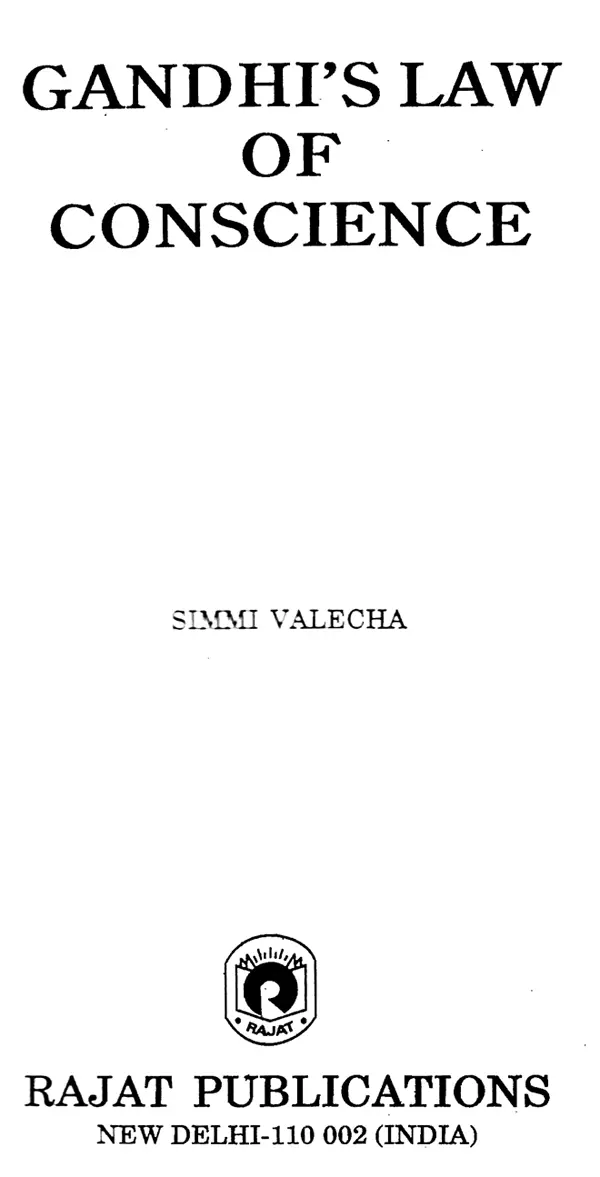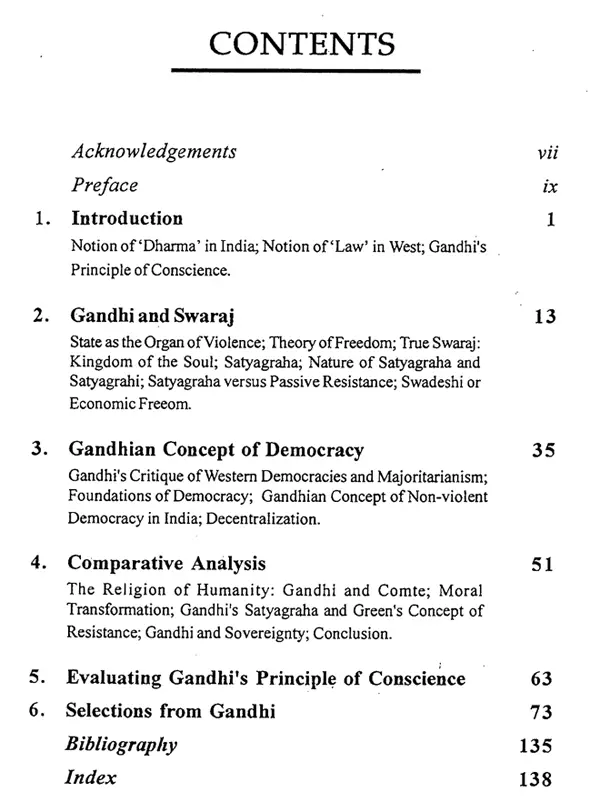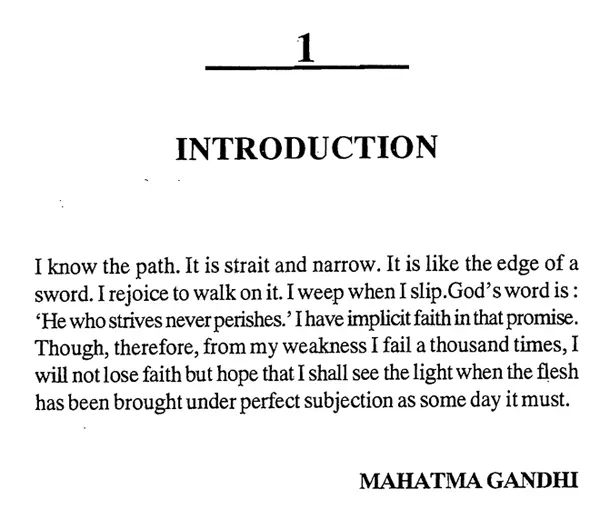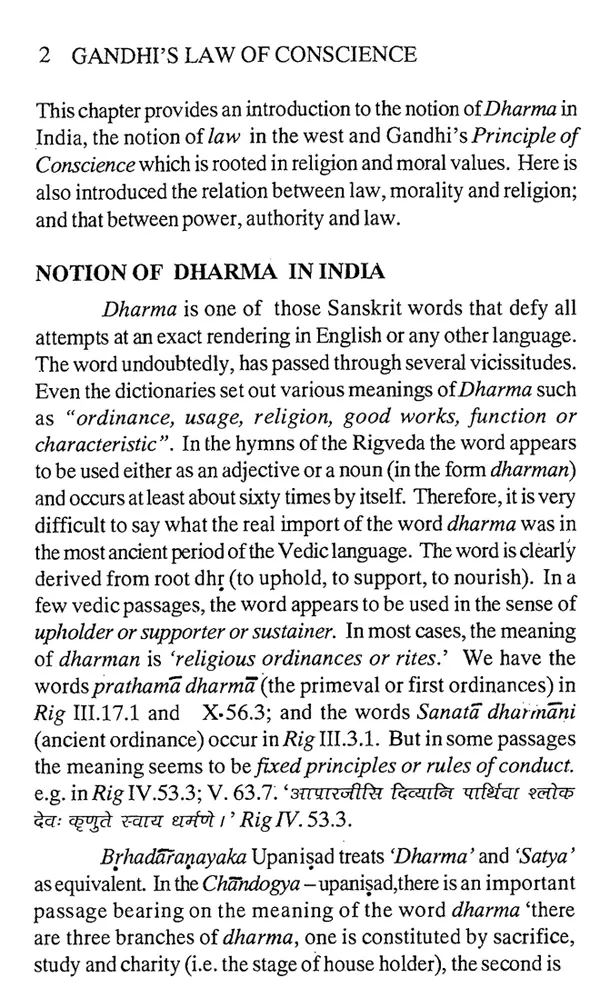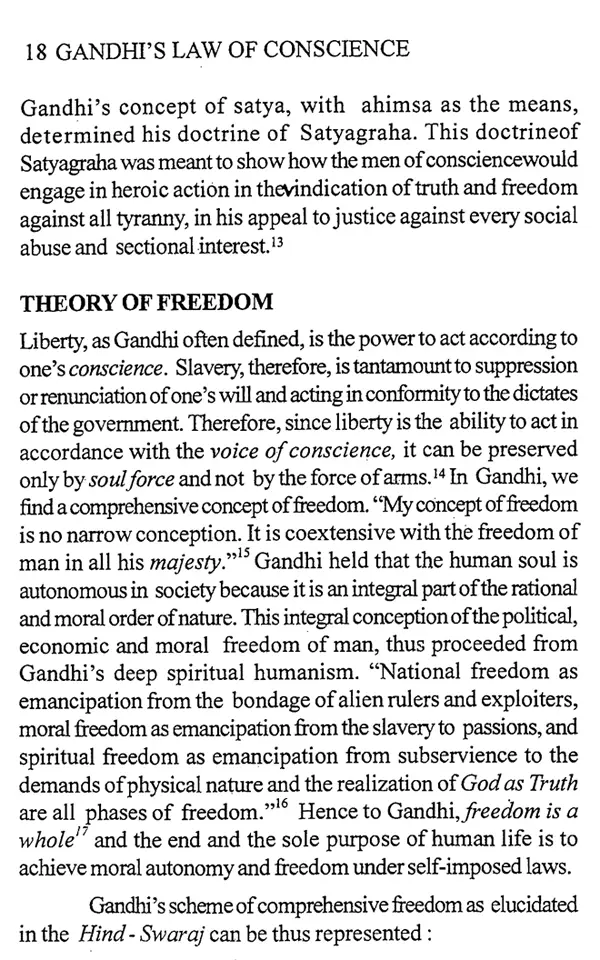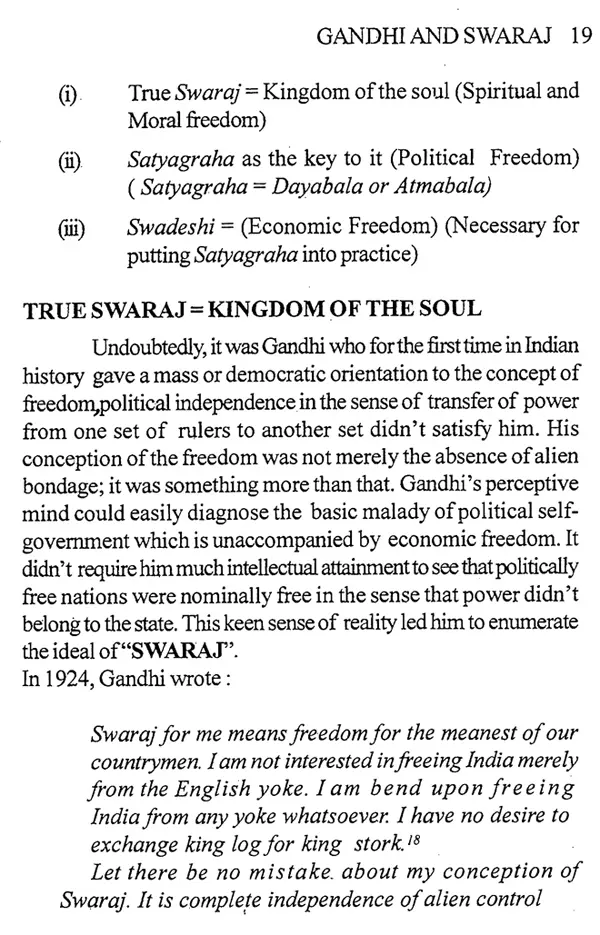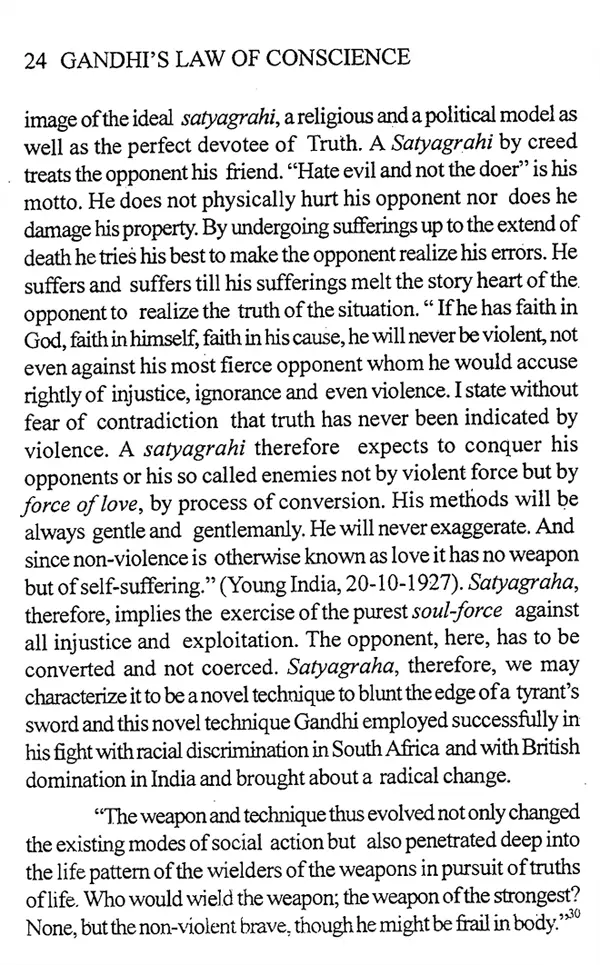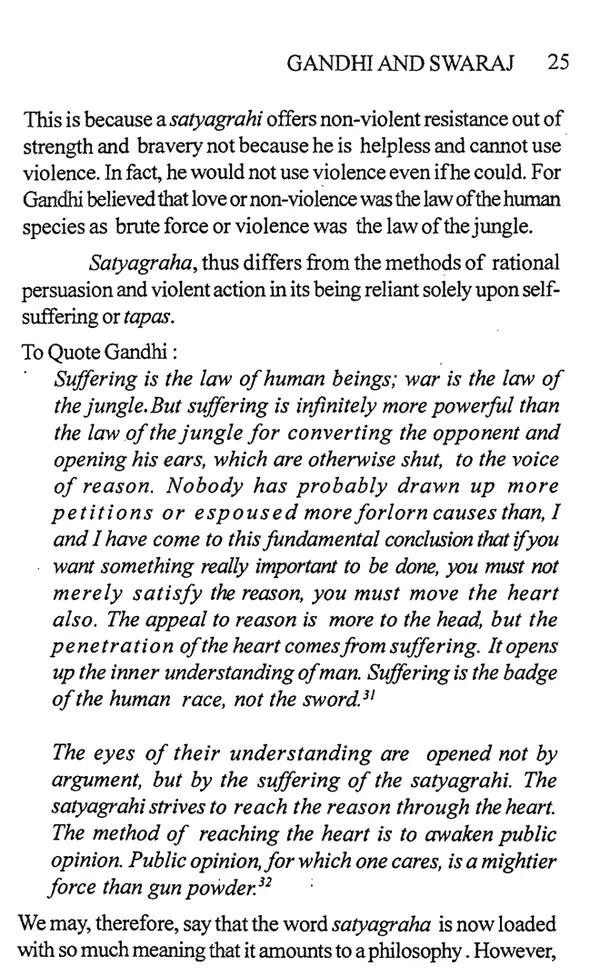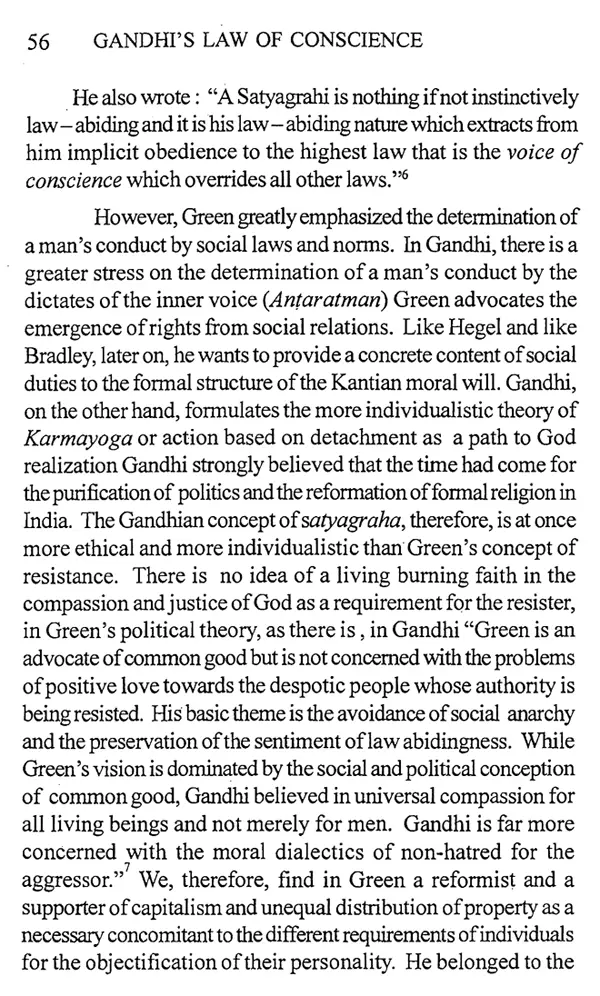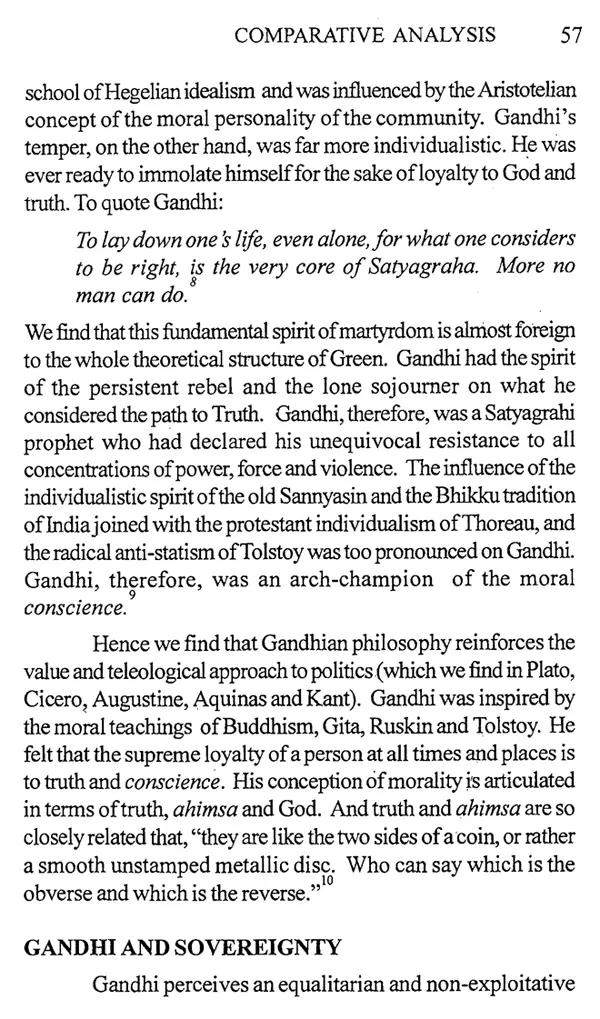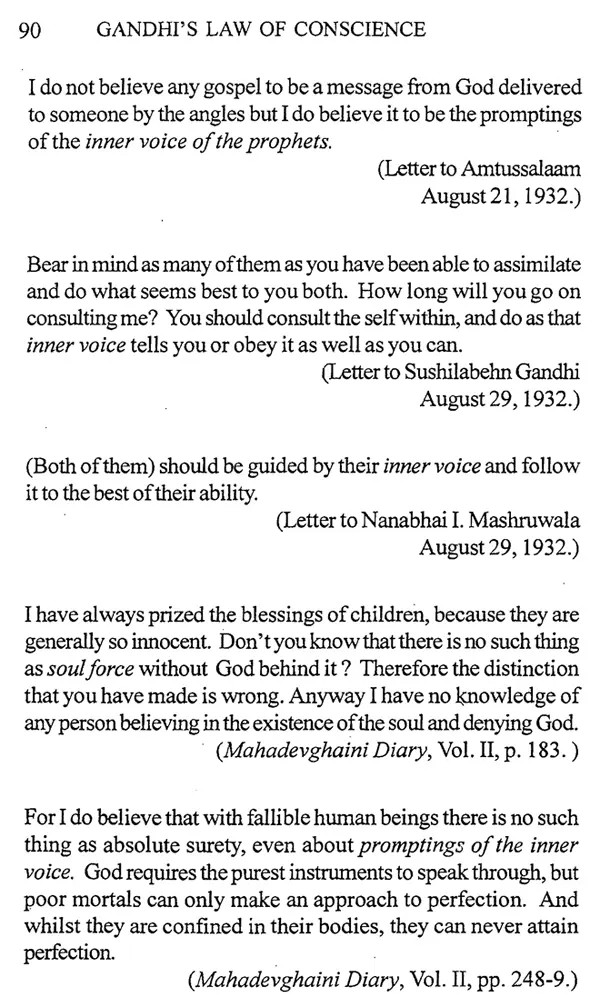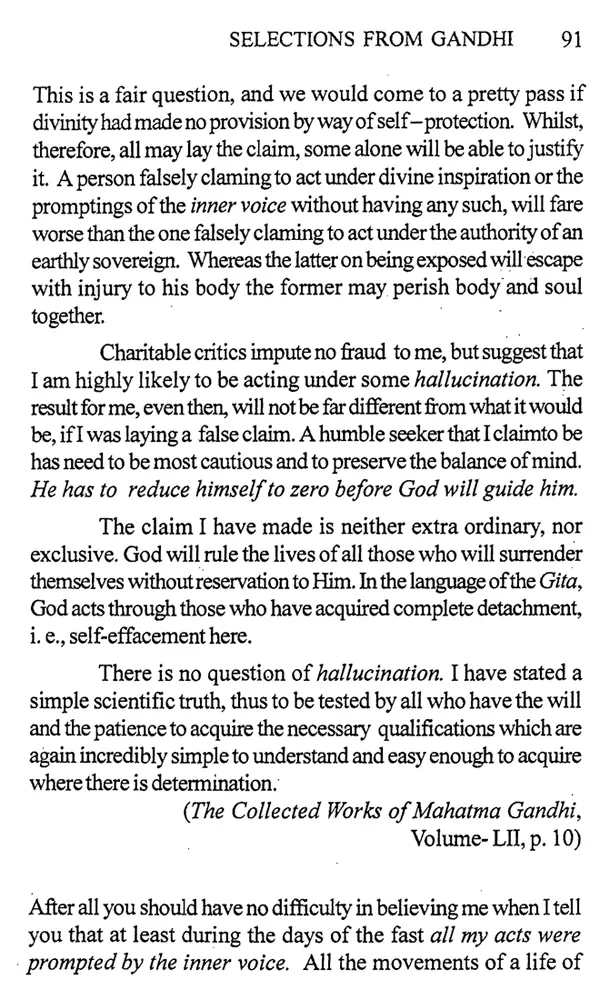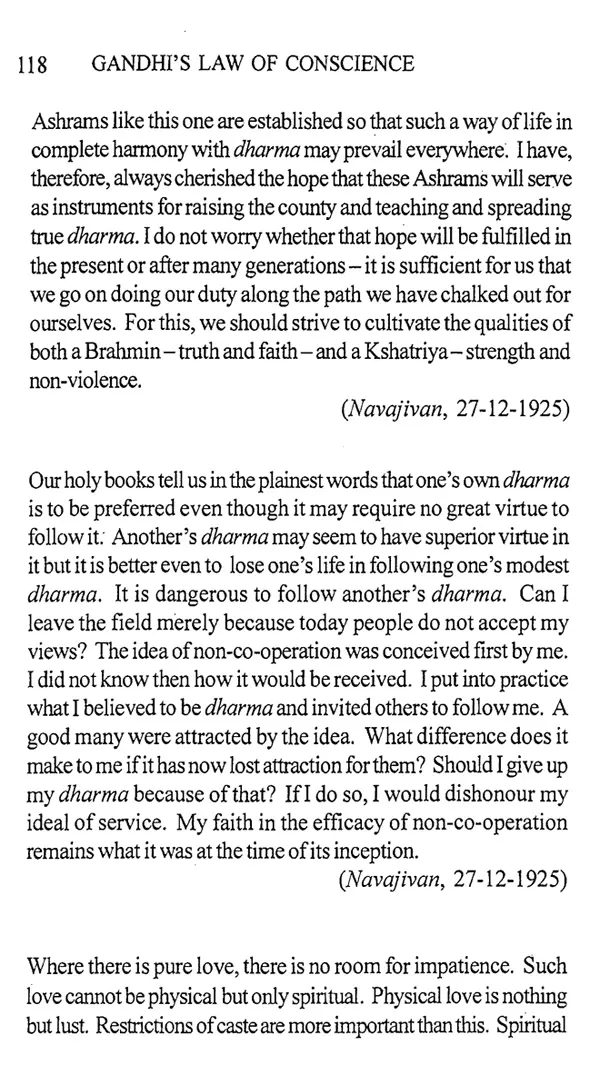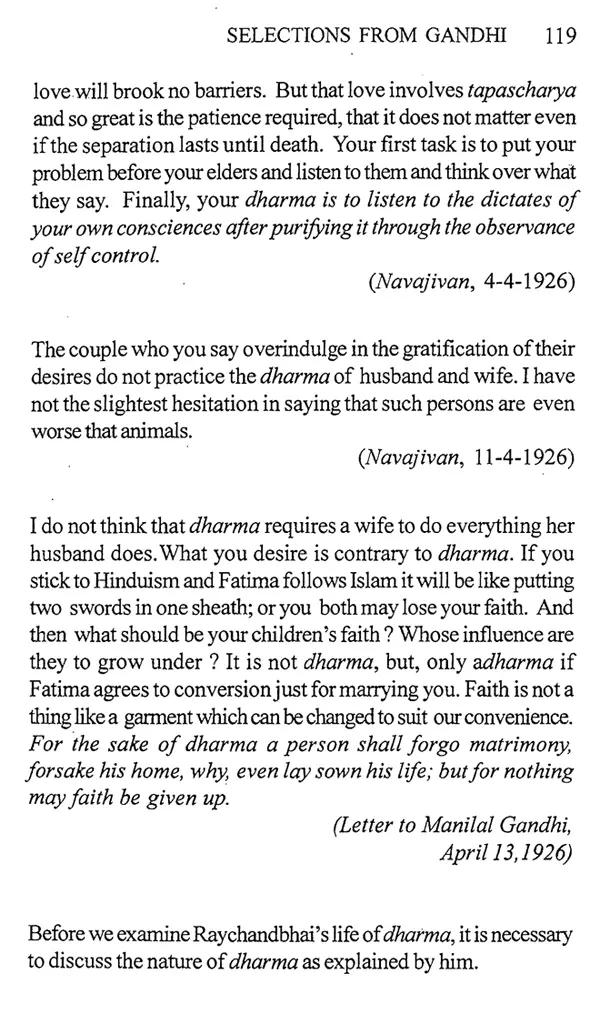
Gandhi's Law of Conscience
Book Specification
| Item Code: | UBA012 |
| Author: | Simmi Valecha |
| Publisher: | Rajat Publications, Delhi |
| Language: | English |
| Edition: | 2018 |
| ISBN: | 9788178800530 |
| Pages: | 143 |
| Cover: | HARDCOVER |
| Other Details | 9.50 X 6.30 inch |
| Weight | 380 gm |
Book Description
Gandhi, who emerged as a political thinker in the pre-independence period, strongly opposed the colonial rule. He provided to the Indians an alternative principle of law through his unique definition of "Swaraj". This principle replaced the western concept of democracy and it is based on the Indian notion of law of dharma.
In this book, the author has referred to Gandhi's concept of law as "Principle of Conscience" as opposed to the western law of coercion. Gandhi has rooted his law in religion (satyagraha) and moral values (ahimsa); both of them being intrinsically Indian.
Simmi Valecha, as a student of the Mother's International School, received 'Sri Aurbindo Merit Scholarships' for three consecutive years. She graduated and post-graduated from Lady Shri Ram College for Women, Delhi University. Ms. Simmi completed her M.Phil. from University of Delhi. At present, she is doing her Ph.D. from Delhi University and is a Junior Research Fellow of Indian Council of Philosophical Research, New Delhi. She has written and presented a number of papers on a variety of Philosophical topics.
The present work is simply an attempt towards studying Gandhian philosophy purely in moral context. Gandhi, who emerged as a political thinker in the pre-independence period, strongly opposed the colonial rule. Here, I wish to show that Gandhi provided to the Indians an alternative principle of law through his unique definition of "Swaraj". This principle replaced the western concept of democracy and it is based on the Indian notion of law of dharma. I have referred to Gandhi's concept of law as "Principle of Conscience" as opposed to the western law of coercion. Gandhi has rooted his law in religion (Satyagraha) and moral values (ahimsa); both of them being intrinsically Indian.
Gandhi's vision of an independent India was of a free society almost without government, with no police, no army, representing a condition of an enlightened anarchy where "everyone is his own rule". In such a situation each individual would be enlightened, his life and there would be no need of any external authority. However, Gandhi was realistic enough to see that some form of government was necessary, at least initially. This concept of least government incorporated the idea of democratic decentralization. Moreover, we know that Gandhi never wrote merely for the pleasure of writing, but all that he spoke or wrote was meant to be translated into action, both in his personal as well as public life. The book, thereby also contains selected writings of Gandhi: that he spoke or wrote on 'conscience', 'inner voice', 'soul-force' 'dharma'.
